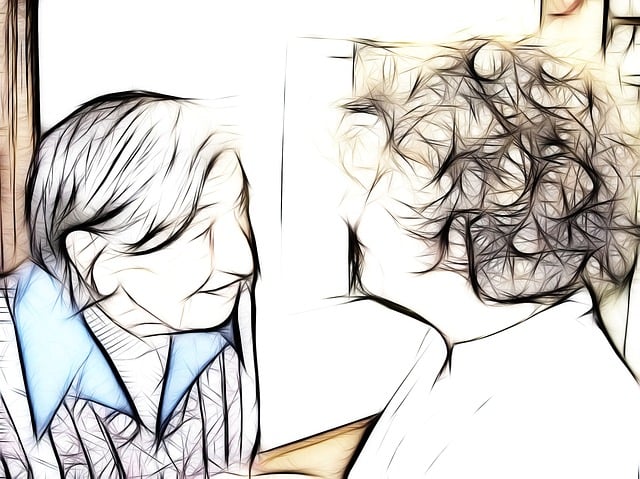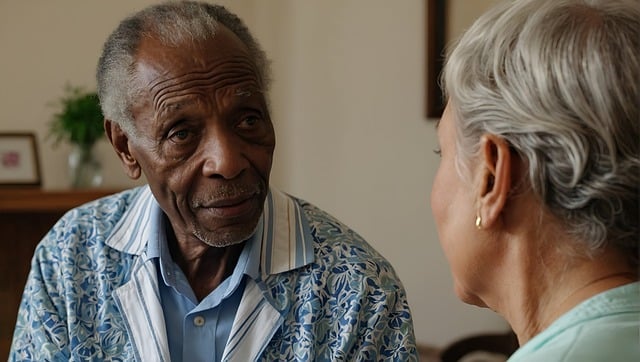The article section outlines the essential role of home care services in managing speech, language, and swallowing disorders for the elderly. It emphasizes that these conditions, along with age-related physiological and cognitive changes, significantly impact an older adult's quality of life. Home care, particularly through in-home aide programs, is crucial for providing both practical support and emotional companionship to maintain mental acuity and overall well-being. Elderly individuals benefit from companion care, which ensures assistance with daily activities and helps combat loneliness and depression. Personal care services for seniors are tailored to facilitate speech therapy exercises and swallowing interventions, enhancing safety, independence, and quality of life. Home care services for seniors are becoming increasingly specialized, with professionals trained to effectively handle these conditions. The multidisciplinary approach involving in-home aide professionals, speech-language pathologists, and occupational therapists creates comprehensive and adaptable care plans. These services include regular monitoring, therapeutic exercise administration, and progress documentation, all contributing to the elderly's health and daily functioning. The article underscores the importance of home care and companion care as integral components of senior care, providing a supportive environment that allows for successful management of these disorders. Home care solutions, including non-medical and personal care, are vital for seniors, offering specialized interventions to meet their unique needs while ensuring they can receive care in the comfort of their own homes.
Each year, the elderly population confronts a myriad of health challenges, among which speech, language, and swallowing (SLS) issues are particularly impactful. This article delves into the complexities of these disorders within the senior demographic, highlighting the critical role home care plays in their management. We explore how in-home aides and companion care can be tailored to support personal care strategies, enhancing recovery for seniors dealing with SLS difficulties. By focusing on home care services for the elderly, this piece underscores the importance of non-medical care in maintaining quality of life, ensuring that seniors receive the compassionate, dedicated assistance they need right at home.
- Overview of Speech, Language, and Swallowing Disorders in the Elderly
- Role of Home Care and In-Home Aide in Addressing SLS Issues
- Customized Personal Care Strategies for Seniors with SLS Challenges
- Integrating Companion Care within Home Care Services to Enhance Recovery
Overview of Speech, Language, and Swallowing Disorders in the Elderly

Speech, language, and swallowing disorders present unique challenges in the elderly population, often exacerbated by aging-related changes in physiology and cognitive function. These conditions can significantly impact an individual’s quality of life, nutrition intake, and social interactions. Home care services play a pivotal role in managing these disorders for seniors. Elderly care, particularly when delivered through in-home aide programs, provides the necessary support to address the multifaceted needs of individuals affected by these issues. Companion care, an integral component of non-medical care, offers not only assistance with daily activities but also companionship, which is crucial for maintaining mental acuity and emotional well-being. Personal care services for seniors are tailored to meet the individual’s specific challenges, ensuring that speech therapy exercises and swallowing interventions are consistently implemented. With the goal of preserving independence and enhancing safety within the comfort of their own homes, home care services for the elderly are increasingly equipped with specialized training to handle these complex conditions, thus enabling a higher quality of life for those facing speech, language, and swallowing difficulties.
In-home aide professionals are often the first line of defense in identifying and responding to these disorders. They work closely with speech-language pathologists, occupational therapists, and other healthcare providers to create a comprehensive care plan. This collaborative approach ensures that interventions are not only effective but also adaptable as an individual’s needs evolve over time. The role of senior care in addressing these issues is multifaceted, involving regular monitoring, the administration of therapeutic exercises, and the documentation of progress or changes in condition. By providing a supportive environment and adhering to personalized care plans, home care services for seniors can effectively address speech, language, and swallowing disorders, thereby improving the overall health and daily functioning of the elderly.
Role of Home Care and In-Home Aide in Addressing SLS Issues

Home care and the role of in-home aides are pivotal in addressing the multifaceted needs of elderly individuals facing speech, language, and swallowing (SLS) issues. These home care services for seniors often provide non-medical care that extends beyond mere companionship; they encompass personal care and tailored interventions to support the unique challenges posed by SLS conditions. In-home aides are trained to assist with daily activities, which can be compromised when an individual has difficulty communicating or swallowing. They work closely with speech therapists and healthcare providers to implement strategies that facilitate clear communication and safe eating practices. This collaborative approach ensures the elderly receive consistent care, adhering to the prescribed therapy plans, thereby enhancing their quality of life within the comfort and familiarity of their own homes.
Furthermore, senior care and eldercare at home are designed to be flexible and responsive to the evolving needs of patients with SLS issues. The in-home aide serves as a vital link between the patient and healthcare professionals, providing observations and feedback that inform any necessary adjustments to the treatment plan. These caregivers often provide crucial support for both the individual and their families, offering respite and peace of mind. Elderly care through home care services is not just about managing health concerns; it’s about maintaining dignity, independence, and a sense of normalcy as one navigates the challenges of SLS disorders from the privacy and familiarity of one’s own home environment.
Customized Personal Care Strategies for Seniors with SLS Challenges

For seniors facing speech, language, and swallowing (SLS) challenges, customized personal care strategies tailored to their unique needs are paramount for maintaining both their health and quality of life. Home care services for seniors offer a comprehensive suite of in-home aide companion care solutions designed to address these issues with empathy and professionalism. These services can be adapted to provide the non-medical care necessary to assist with daily activities, ensuring that seniors can safely and comfortably manage their personal care routines while also addressing their SLS concerns. Specialized in-home aides receive training to recognize and respond to swallowing difficulties, which may include dietary modifications and specialized feeding techniques. They work closely with speech therapists and healthcare providers to create a cohesive care plan that not only supports the senior’s medical needs but also fosters a nurturing environment that respects their autonomy and dignity.
Elderly care programs often incorporate a holistic approach, recognizing the importance of social interaction in the well-being of seniors with SLS challenges. In-home aide companion care goes beyond mere assistance with tasks; it provides a meaningful connection that can alleviate feelings of isolation and depression often associated with these conditions. The companionship aspect of this care is particularly valuable, as it encourages active engagement in activities, promotes socialization, and supports the emotional well-being of the senior. This level of personalized care allows seniors to remain in the comfort of their own homes while receiving the tailored support they need to manage their SLS issues effectively.
Integrating Companion Care within Home Care Services to Enhance Recovery

Integrating companion care within home care services has become an invaluable aspect of senior care, particularly for elderly individuals facing speech, language, and swallowing issues. Home care services for seniors now often include a specialized form of companion care that focuses on these specific needs. An in-home aide trained in companion care can provide non-medical care that addresses the patient’s challenges holistically. These aides are equipped to assist with personal care tasks while also employing therapeutic techniques tailored to enhance recovery from speech and swallowing disorders. The presence of a compassionate and attentive companion can significantly improve the elderly’s quality of life, as they navigate the complexities of these conditions. The one-on-one interaction and consistent support offered by an in-home aide companion can help maintain the patient’s cognitive and physical well-being, ensuring that they receive care that is both personalized and comprehensive. This approach not only supports the elderly’s health but also fosters meaningful relationships, which are crucial for emotional well-being and social engagement. By embedding companion care within home care services, senior care and elderly care can be elevated to a level where recovery becomes a more integrated and less isolating journey.
In conclusion, speech, language, and swallowing disorders present unique challenges for the elderly population. These issues can significantly impact an individual’s quality of life and independence. The role of home care in addressing such concerns is not only crucial but also increasingly sophisticated, thanks to the integration of personalized care strategies tailored to seniors’ specific needs. Home care services for seniors have evolved to include the vital support of in-home aides who specialize in companion care, offering non-medical assistance that enhances recovery and promotes overall well-being. By leveraging the compassionate and skilled care provided by in-home aide companions, elderly patients can effectively manage their speech, language, and swallowing challenges within the comfort and familiarity of their own homes. This comprehensive approach underscores the importance of senior care and elderly care services that prioritize individualized attention and support, ensuring the best possible outcomes for those facing these complex issues.
